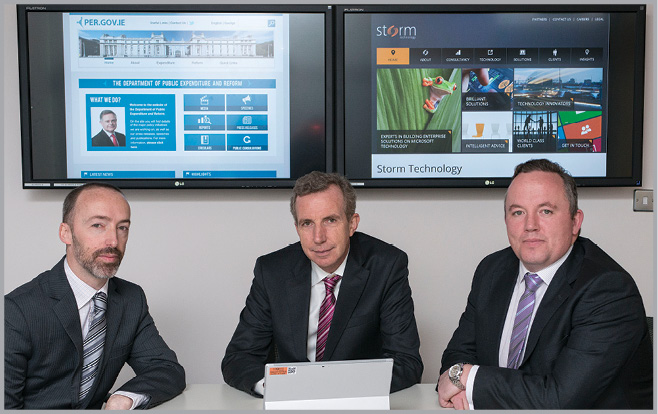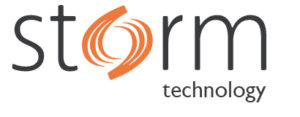OGCIO brings digital services to the Irish public service

The office’s strategy is to deliver innovative digital services to the government, while enhancing its information assets.
Established in 2013, the Office of the Government Chief Information Officer (OGCIO) at the Department of Public Expenditure and Reform (DPER) is responsible for developing and implementing an ICT strategy for the Irish Public Service. One theme of its strategy is to ensure an efficient, shared and integrated approach to ICT across all departments through ‘build to share’ initiatives while delivering new innovative digital services and enhancing the use of the Government’s information assets.
Today, real inroads are being made by the OCGIO in delivering against its remit.
“As part of the overall strategy to support the Reform agenda we have been working on a number of initiatives that address the need to centralise and digitalise common corporate processes and applications across government,” says Owen Harrison, Principal Officer, Office of the Government CIO.
“Our overall aim is to support the ‘build to share’ strategic theme. Where there are systems and processes that are common to departments, our approach is to build and design central applications that can then be used by all.
“By doing so we believe that we can aid the Reform agenda in a number of ways. We will capitalise on efficiencies of scale, standardise common processes, enhance the quality of applications being developed and have a positive on-going impact on resource efficiencies,” he adds.
Progress
In line with the ‘build to share’ strategy, the OGCIO has designed and developed three common corporate applications which have been successfully implemented in two government departments, the Department of Public Expenditure and Reform (DPER) and the Department of Finance.
“As part of our ‘build to share’ strategy we have worked closely with our partner Storm Technology and the departments to develop and implement three centralised applications. e-Submission and e-Parliamentary Questions have been successfully deployed across both DPER and Department of Finance, whilst eDocs is in the process of being rolled out,” explains Harrison.
e-Docs
The provision of information to other government departments, public bodies and the general public in an accurate and timely manner is a critical function of the departments. The e-Docs application built on Microsoft SharePoint 2013 and designed in collaboration with Storm Technology aides the journey towards better digitalisation and utilisation of Government’s information assets.
e-Docs is a comprehensive, end to end document and records management solution providing a central source of information across the departments. It supports information in a diversity of data formats emanating from multiple channels – from standard documents to images, emails, videos, articles, communications and scanned documents. It seamlessly manages the full life cycle of these information assets – from initial creation, capture, saving, sharing, changing, searching and retrieving – in an intuitive manner, that enhances the experience for users. The application has been designed with a sophisticated information architecture contextualising and structuring data in a manner that enables the user to effectively retrieve all pertinent information related to their files.
“The e-Docs application is key to helping us reform the way we manage and apply information within departments,” comments Harrison. “The application enables us to move to a digitalised information management structure complementary to today’s modern digital workers’ needs. However, it does so taking into account the regulatory, compliance and legal requirements that govern our operations.”
“Furthermore it enables us to successfully address the increased complexities around organising information that come with the volumes of information we deal with in today’s information age. This enables departments to find, share and act upon information much more effectively. Improved efficiencies in the retrieval and sharing of relevant information allows departmental efforts to be focused on the application of information to drive outcomes and decisions.”
He adds: “The development and implementation of the e-Docs solution has been a combined effort across DPER, DFIN and our external partner Storm Technology. Storm has worked with us from the start on this project complementing our team with expertise around how to create and execute a sophisticated digital strategy and information architecture that has meaningfully enhanced how information is being stored, found and applied across the departments.”
e-Submissions
Internal submissions in the form of informational updates, briefing notes or discussions are part of everyday operations in government departments. These typically are formal communications between departmental staff, Ministers and the Secretary General. As such they need to be managed, recorded and treated in line with approved policies and procedures. The e-Submissions application, designed in partnership with Storm on the Microsoft SharePoint platform, digitalises the internal submissions processes.
“For all Departments, internal submissions are an everyday occurrence integral to operations and critical to process, record and account accurately. The e-Submissions application enables us to improve this process significantly. All submissions are now standardised around an efficient electronic process from start to end. The centralisation of content also enables staff members to retrieve and use the information being sought in a more efficient manner,” comments Harrison.
“In particular Storm provided innovation, insight and valuable expertise in understanding how to architect the ‘build to share’ common applications on the
SharePoint platform.”
Owen Harrison, Principal Officer, Office of the Government CIO
e-Parliamentary questions
Every year around 51,000 parliamentary questions are raised. These are questions asked by deputies to government ministers relating to the public affairs connected with their departments. Accurate and complete responses are required for each question raised within a strict timeframe.
The process for parliamentary questions is complex and resource and time intensive. Questions are issued to the departments from the Oireachtas in a specific format from Lotus Notes and responses need to be returned in an exact custom format. To enable this to happen seamlessly and without any manual intervention, the team at Storm architected and implemented a custom framework that brokers this integration by automating the receipt of and subsequent updates to parliamentary questions into the SharePoint process. Similarly the application automates the return of the formal and complete responses from the e-Parliamentary Questions solution back into the Oireachtas’s Lotus Notes system.
This has enabled significant improvements to be achieved in how the departments operationalise the parliamentary questions process from initial requests through to formal response. The e-Parliamentary Questions solution also integrates with the SharePoint platform enabling it to leverage advanced search, tracking and audit capabilities.
“Parliamentary questions are common across all departments, with the e-Parliamentary Questions solution we are able to build a common application that can be shared by multiple departments. As we rollout the solution further it will bring measurable value to the transparency, controls and efficiency of processing parliamentary questions,” explains Harrison.
The e-Parliamentary Questions, e-Submissions and e-Docs application are built on the same Microsoft SharePoint platform maximising the return on technology investment for the departments.
“Maximising return on investment is core to our function, so the ability to build common applications on a single platform that can be shared across departments is of significant value to us. These initiatives blended our own internal expertise with that of our external ICT service provider Storm Technology. In particular Storm provided innovation, insight and valuable expertise in understanding how to architect the ‘build to share’ common applications SharePoint platform.
A centralised platform that could be used across multiple departments while working in harmony with internal technology needs,” he adds.
Value and outcomes
The outcomes of the initiatives being undertaken by the OGCIO have a dual impact. At a strategic level they tangibly enhance the realisation of the public service ICT strategy in regards to ‘Build to Share’ and ‘Data as an Enabler’.
At a departmental level they bring reform and improvements driving better efficiencies, reducing cost duplication, improving process standardisation and digitalising information management to improve resource utilisation and enhance the delivery of services.
“These initiatives which have proven successful to-date are part of our on-going strategy to build digital applications that can be commonly shared across departments bringing efficiencies and enhancements that will continue to aid the Reform agenda. We hope to continue our successful collaboration and partnership with Storm on these important initiatives,” concludes Harrison.
Storm Technology Ltd
The Capel Building
Mary’s Abbey, Dublin 7
Email: info@storm.ie
Web: www.storm.ie






